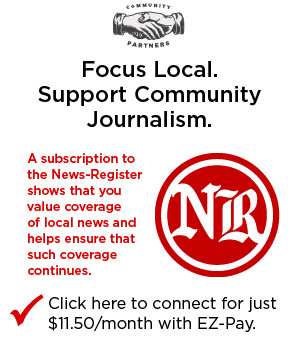City making right move in revising lodging tax terms
The McMinnville City Council took a step we’ve long advocated Tuesday, when it decided to renegotiate allocation of the ever-growing stream of local lodging tax dollars.
The result could and should be diversion of some of the tourism-oriented share to allowable and appropriate infrastructure development rather the promotional activity. State law sets tough standards, but there are ways the needle can be threaded, thus spreading benefits of our tourism economy more broadly.
For decades, McMinnville stubbornly refused to join the near-universal ranks of jurisdictions taxing visitor lodging, thus neglecting a river of revenue to promote tourism, develop new tourism infrastructure and support unrelated initiatives.
But since enacting its first transient lodging tax five years ago, the city has experienced substantial growth in local lodging nights and increased the rate two percentage points. As a result, revenue running $600,000 during the tax’s first full fiscal year is now more than double that, with no end in sight.
The city is required to allocate 70 percent to tourism promotion and infrastructure. Under a contract set to expire next year, the city has been allocating the entire 70 percent to the local tourism promotion agency, Visit McMinnville.
But what made sense at the original $600,000 will cease to be logical as the sums continues to soar ever upward. That’s particularly true when we have critical infrastructure failings no amount of promotion can hide, notably trying to serve a lucrative jet-set wine trade with a third-rate airport.
The council voted 6-1 to create a community task force to help guide negotiation of new terms. As we see it, the goal should be providing Visit McMinnville with a cut sufficient to continue mounting a first-class promotional program and siphoning off what figures to prove a significant and growing excess to address facilities on the ground.
The cause has found its greatest champion in Councilor Sal Peralta. However, it drew broad backing Tuesday.
Support was not only expressed by the city’s hired staff and elected council, but also Erin Stephenson, co-owner of the Atticus Hotel and board chair of Visit McMinnville. The only dissenting note was struck by Councilor Remy Drabkin, proprietor of a local winery, who appeared to take the renegotiation effort as a slap at local tourism promotion.
Four developments have been serving to drive revenue skyward: 1) Opening of an upscale, $8 million hotel last year; 2) A hike in the rate from 8% to 10% in the fall of 2017, accompanied by expansion to also encompass RV parks and campgrounds; 3) Accelerating growth in tourism, based largely on rising interest in Oregon Wine Country; 4) Award-winning promotional efforts by Visit McMinnville. And that has fostered a gusher of new development of similar nature, which figures to swell the coffers even more.
We’ve long advocated for investing a portion of tourism tax revenue, along with state lottery money dedicated to county economic development, to facility enhancements. The state’s eligibility criteria include conference, convention and visitor centers, along with any property displaying “a substantial purpose of supporting tourism or accommodating tourist activities,” which works for us.











Comments
DundeeTed
Well said editorial board. Great marketing will attract new visitors. But a solid infrastructure will turn those new visitors into returning visitors that will bring others.